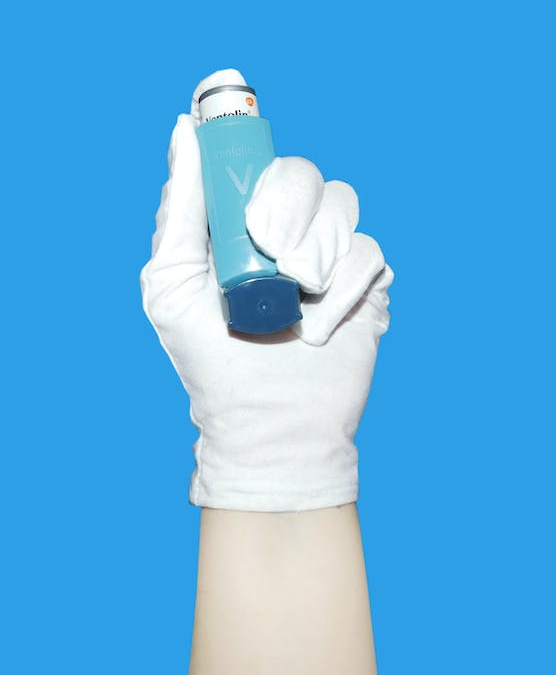Winter is the most challenging time for people with asthma. That’s because a sudden shift in the weather and cold, dry air irritates the airways, causing increased mucus production. Staying indoors isn’t always helpful as asthma increases the risk of respiratory illnesses, including flu and colds.
Asthmatic individuals always have some inflammation in their airways which makes them narrower, leading to breathing difficulties. This guide will discuss why asthma worsens in winter.
How Cold Air Triggers Asthma
Asthma symptoms worsen in winter because of multiple reasons. The main reason is dry air. Your lungs’ airways are protected with a layer of fluid, but when exposed to cold air, this fluid evaporates. As a result, your airways become irritated and inflamed.
Your airways also have a protective mucus lining which thickens as the air gets cold. This increases the risk of respiratory infections such as the flu or the common cold.
Though going for a walk daily is healthy, it requires greater lung capacity. As you walk, you breathe in cold air, which restricts your airways and triggers breathlessness and cough. Asthma symptoms are the same in both colder and warmer months. The only difference is that the symptom gets worse in winter. The more severe your condition is, the more cold air will affect you.

Why are Winters Difficult for People With Asthma
Cold weather often brings wind, rain, and air pressure fluctuations, even in areas having mild climates. Windy and rainy weather leads to barometric pressure changes and causes mold spores to release into the air. As a result, your sinusitis and asthma are triggered.
Moreover, viruses, colds, and flu are common in winter, so your airways are more likely to get inflamed. These illnesses worsen asthma symptoms by thickening the mucosal layer in the bronchial tubes.
As the weather gets colder, you’re more likely to spend your time indoors with closed doors and windows and the heating system on. This exposes you more to indoor respiratory viruses, irritants, and allergens. For instance, your asthma symptoms can be triggered due to mold, pet dander, mold, and cigarette smoke if you live with a smoker.
Necessary Precautions
People with asthma should make sure that their condition is under control long before winter arrives. Consult your healthcare provider, who will help you create an asthma action plan and prescribe medicines. These medicines are either to be taken daily (for long-term benefit) or only when you need them (for instant relief).
Medicines for long-term control are drugs to be taken every day. These commonly include long-acting beta-agonists, leukotriene modifiers like montelukast, and inhaled corticosteroids. Remember that long-acting beta-agonists must always be taken with inhaled corticosteroids.
On the other hand, quick-relief medicines are to be taken as needed, such as before you exercise in the cold. Short-acting anticholinergics and bronchodilators are common examples of such drugs.

Tips for Avoiding Asthma Attacks
Asthma attacks can be prevented by staying indoors on colder days—when the temperature falls below 10 degrees Fahrenheit. If you go outside, always cover your mouth and nose with a scarf to warm the air you breathe.
Some other effective tips include drinking extra fluids in winter, as this keeps the mucus in the lungs thinner, making it easier for your body to remove it. Avoid meeting people who appear to be sick and get a flu vaccine earlier during the fall.
Deep clean your home before winter arrives to remove dust particles and indoor allergens. Washing your blankets and sheets every week with hot water will also help eliminate dust mites.
When you go out to exercise in cold weather, remember to use your inhaler 20–30 minutes before starting. This will open up your airways and make breathing easier. Always carry an inhaler wherever you go to deal with an asthma attack.
Before working out, warm up your body for at least 10–15 minutes to reduce the intensity of an asthma attack.
What to Do During an Asthma Attack
Sudden shortness of breath and wheezing indicate an asthma attack, and you should immediately follow the action plan recommended by your doctor. If the symptoms make it difficult for you to even speak, your family members must know which quick-acting medicine you need to take.
If you’re having an asthma attack, take 3–6 puffs of the quick-acting rescue inhaler, which will open up your airways and help you breathe easier. You can also use a nebulizer instead of an inhaler. The machine turns the medicine into fine mist to help you breathe it in.
At times your symptom may not be severe but fail to improve even after using the inhaler. In this case, wait 20 minutes and take another dose.

Get Financial Assistance To Fill Your Prescriptions
Advocate My Meds offers financial assistance for prescriptions to underinsured and uninsured patients. They offer prescription assistance programs from Merck, Janssen, Pfizer, GSK, Novo Nordisk, Abbvie, and other reputable companies.
Need financial help with treatment? They offer prescription assistance for asthma, mental disabilities, diabetes, heart diseases, and more. Enroll in their full-service prescription assistance programs now!


